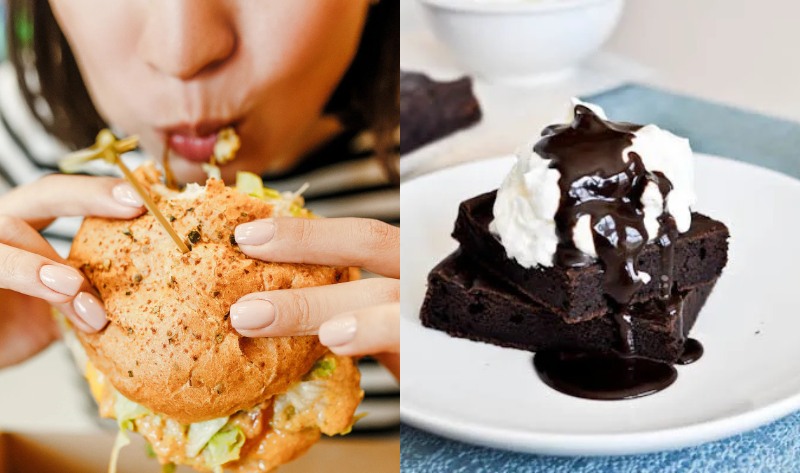Are you eating in case you’re hungry later? Do you spend a lot of time leaving the refrigerator door open wondering what to eat next? Are you a self-confessed foodie? People eat food for a variety of reasons, but the first and most important is to survive and thrive. Food provides energy and nutrients to sustain life, but today’s hectic lifestyles mean we consume more food and calories than our bodies actually need. With the easy availability of processed foods, the convenience of ordering food through delivery apps, and an endless supply of cheap snacks, we sometimes rely on people to fight boredom, combat stress, or maintain social bonds. Because of this, we eat without feeling truly hungry. With friends and colleagues. This confusion between true hunger and emotional or environmental factors can contribute to overeating and weight gain. Developing mindfulness about our body’s signals and practicing mindful eating can help you make better food choices and help you lose weight if you’re trying to get toned and healthy. Helpful. Here are eight questions to ask yourself before every meal to help you lose weight.

1. Am I really hungry?
Are you eating because you’re bored and have nothing else to do? Are you feeling anxious or stressed and wouldn’t a bite of ice cream instantly make you feel better? Before you choose what to eat, check if it’s really what you need to replenish your energy. And make sure you’re not giving in to emotional eating to overcome stress, boredom, or other emotions. This type of diet can add unnecessary calories and can be an obstacle to weight loss.
2. Do you eat to socialize with others?
Social gatherings, work meetings, and other events often revolve around meals, and we splurge simply to provide company. If you’re not hungry or the food doesn’t fit into your diet, politely say “no.” Remember that social gatherings are about connecting with others and shouldn’t just revolve around food. If you choose to eat, choose healthier options such as salads, soups, and steamed vegetables. Avoid fried and high calorie foods.

3. Are there any distractions around you?
Eating without distractions, such as watching TV or scrolling on your phone, allows you to practice mindful eating and be aware of the food you’re consuming. It can also help you lose weight by identifying your body’s hunger and fullness cues and helping you avoid overeating.
4. Is this food included in my diet plan?
If you are following a weight loss plan, be careful not to add extra calories by eating foods outside of your eating habits. Maintaining a calorie deficit is important to losing weight, and if your previous meal had too many extra calories, it’s best to avoid it. Also read: 8 Surprising Empty Calorie Sources You May Be Overlooking.
5. Have you practiced portion control?
Practicing portion control is essential to maintaining a calorie deficit. This means eating fewer calories and burning more calories so your body can use stored fat for energy. It’s hard to keep track of your calories unless you control how much you eat. Therefore, be sure to measure your food to avoid excess portions of a large meal.
6. Will this food nourish my body?
Did you know that you need a lot of nutrients to burn fat? Especially protein, fiber, healthy fats, iron, zinc, copper, calcium, and many other nutrients. If you are deficient in nutrients and are eating empty calorie foods or foods high in sugar and fat, your body will quickly send out hunger signals over and over again to meet your nutrient needs. Fiber and protein also help you feel fuller for longer. Therefore, try to eat nutritious foods instead of just empty calories.
7. Am I giving in to desire?
Frequent eating symptoms may occur when you crave certain foods or eat your favorite snacks. The desire to eat sweet, salty and savory foods can lead to weight gain. If you just want to eat something and aren’t really hungry, say “no” to yourself. Also read “7 Ways to Avoid Overeating During Snacks.”
8. How does eating this food make you feel?
If you immediately regret eating the food, it’s not for you. Notice how you feel after eating. Healthy, portion-controlled foods make you feel good. On the other hand, junk food and heavy foods can make you feel sluggish and uncomfortable. When you eat sugar-rich foods, your blood sugar levels rise quickly and then fall, making you hungry quickly. If that meal is part of a cheat meal, that’s perfectly fine, as it will help you avoid feeling restricted, satisfy your cravings, and better adhere to your meal plan.
In summary, when you start your weight loss journey, you need to be completely conscious of every meal you are eating. Ask these basic questions and stick to your diet plan to lose weight. Also, to lose weight quickly without compromising your nutrition and health, lati beauty app To access all diet plans, go to
7 ways to prevent overeating when snacking
8 surprising sources of empty calories you may be overlooking


